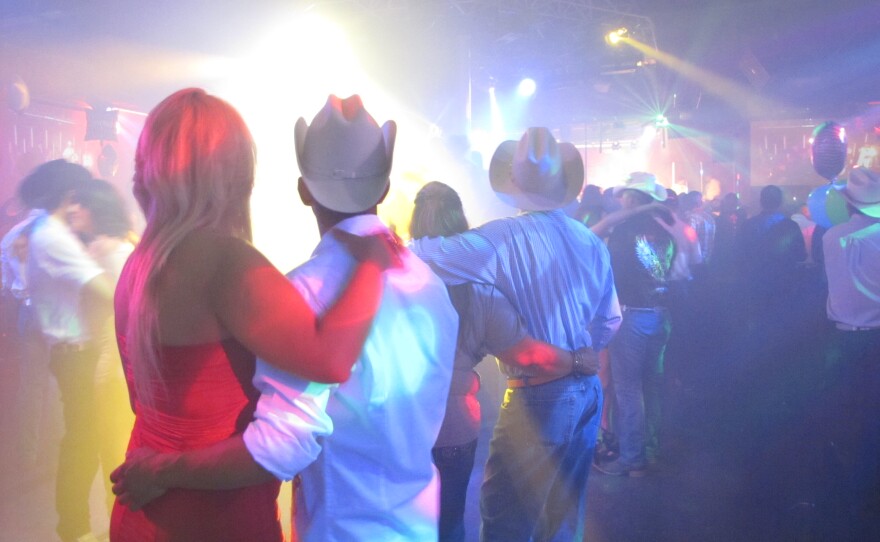Living it up like a drug trafficker, or “narco”, is no longer the fantasy of some poor barrio kids in Mexico. It’s increasingly becoming a compelling lifestyle to a growing number of youth in the United States.
In May, lawmakers from two Mexican states – Chihuahua and Sinaloa – announced a ban on “narco corridos”, or Mexican country songs dedicated to drug traffickers. At the same time, some of the artists who sing those songs are getting booked for concerts at clubs in major U.S. cities.
Not far from the Mexican border, outside a rowdy club in east El Paso, Texas, tipsy fans of one of those artists flooded out the side door at 2 a.m. to watch him take off in a white passenger van.
The artist was “El ‘Tigrillo’ Palma” and some fans drive more expensive cars than the one he just left in. The parking lot was dotted with a couple of large Hummer SUVs, a pearl white Jaguar and more than a few hefty Chevy trucks. The men are wearing ostentatious cowboy attire and the women in high heels and mini dresses.
During the concert, El Tigrillo, which means little tiger, delighted a packed house with songs about beautiful women and macho drug lords. He’s actually tame compared to most narco corrido artists.
The lyrics in these songs traditionally recount shootouts with AK-47s and boast about how the narcos ¬– not the police – are in charge. These concerts don’t just happen in venues on the U.S.-Mexico border. They are staged as far north as Seattle and as far east as North Carolina.
Elijah Wald is a Boston-based musician who wrote a book on narco corridos after hitchhiking his way through Mexico. He also keeps up with the full spectrum of narco culture in the United States, which goes beyond music and spreads into religion, fashion and television.
“There’s a whole generation of kids…who stopped thinking of the corrido as their parents and grandparents music and started thinking of it as the Mexican equivalent of gangster rap,” Wald said.
You can find narco music and movies at Target and Walmart. Some of their YouTube videos have more than 1 million hits. Wald argued the culture has a higher following in the United States than in Mexico.
Most narco corrido videos are shot in places like Los Angeles and Las Vegas. The artists switch between the Mexican cowboy look and a modern American gangster with dark shades and a buzz cut. Wald said this kind of narco culture is wildly popular with certain Mexican-American youth.
“These are people…who feel intensely Mexican and intensely like urban Americans,” Wald said.
Narco culture isn’t limited to music or young people.
“They show beautiful houses, they show good cars, restaurants,” Monsisvais said. “Fancy, fancy lives.”
But the big question is whether or not this swanky showcase of narco lifestyle is enough to persuade young people to become drug traffickers.
One former gang member said the lifestyle certainly appealed to him. He asked not to be identified because he is trying to get out of the gang.
“To us poor kids. We ain’t got no father figures, (so) we look at somebody with money (and) we see the cars,” he said. “I mean that’s what I got attracted to. I got a Cadillac quick.”
The 24-year-old used to sell drugs for a Mexican cartel in Nebraska. The money, he said, came easy. He had cars, girls and fancy clothes. But in the end, he said it wasn’t worth it.
Those things make him feel at home. He now knows that he doesn’t have to live the lifestyle to enjoy the culture.







